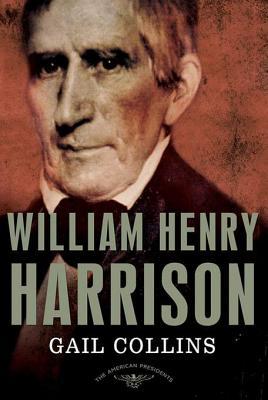
William Henry Harrison
The 9th President,1841
کتاب های مرتبط
- اطلاعات
- نقد و بررسی
- دیدگاه کاربران
نقد و بررسی

October 24, 2011
Barely a footnote as chief executive because he died after a month in office, Harrison (1773–1841) receives a surprisingly entertaining biography from Collins (When Everything Changed: The Amazing Journey of American Women from 1960 to the Present), who with the occasional wry aside on political shenanigans that characterizes her New York Times op-ed column, tells everything the average reader might want to know about our ninth president. Despite the legendary 1840 campaign featuring a “log cabin, hard cider” frontiersman with humble origins, Harrison was born on a Virginia plantation, built himself a mansion as governor of the rough Indiana frontier territory, and avoided alcohol. His fame rested on two victories: the 1811 battle of Tippecanoe against the Shawnee Indians, and the 1813 Battle of the Thames during the War of 1812, in which the Indian leader Tecumseh was killed. For decades afterward, he struggled as a farmer and Ohio politician; he lost the 1836 presidential election but won four years later. While he accomplished nothing as president, his earlier achievements are well served in this excellent addition to the American Presidents series.

November 1, 2011
This splendid series of slim biographies nears completion with a satisfying life of our ninth and least important president. New York Times columnist Collins (When Everything Changed: The Amazing Journey of American Women from 1960 to the Present, 2009) admits that Harrison (1773–1841) accomplished little before dying a month after inauguration. His career peaked nearly 30 years earlier, but he was not the first politician to milk earlier triumphs. The son of a prosperous Virginia planter, he served several years in the Army before using family influence to win appointment as Indiana Territory governor in 1800, where his job was to encourage white settlement and remove Indians. He won a national reputation after the 1811 Battle of Tippecanoe, a bloody skirmish in which far more whites than Indians died. As a general in the War of 1812, he won the Battle of the Thames in Canada, another glorified skirmish that was acclaimed because the widely feared Indian leader, Tecumseh, was killed. Resigning in 1814, Harrison retired to his Ohio estate and a mediocre political career, winning some offices, losing others. He was the first Whig candidate for president in 1836 and lost, but won in the famously lowbrow "Tippecanoe and Tyler, too" 1840 campaign, which began the American tradition (unique among democracies) of candidates boasting that they are no smarter than the electorate and that this ordinariness makes them fit to lead the nation. Although more a journalist than a historian, Collins has done her homework and written a lively, opinionated portrait of early-19th-century America and the modestly talented general who briefly became president.
(COPYRIGHT (2011) KIRKUS REVIEWS/NIELSEN BUSINESS MEDIA, INC. ALL RIGHTS RESERVED.)

December 15, 2011
That William Henry Harrison was president requires his entry in the American Presidents series, this one written by an op-ed columnist for the New York Times. Harrison's mark on presidential history was that his administration was the briefest in U.S. history. He died of pneumonia only 31 days after taking office. Harrison sprang from a fine old Virginia family, his father a signer of the Declaration of Independence. Harrison made the military his career, rose to general, and earned a reputation (though a questionable one) in the Indian skirmish called the Battle of Tippecanoe. He later added the offices of governor of the Indiana Territory and congressman and senator from Ohio to his r'sum'. But the real story Collins has to tell is Harrison's against-all-odds presidential candidacy in the 1840 election as the Whig contender. Calling it one of the most ridiculous presidential campaigns in history, Collins sees how the Whig leaders put an incredible spin on Harrison, selling this Virginia aristocrat as a humble soldier with log-cabin origins marketing genius, as Collins has it.(Reprinted with permission of Booklist, copyright 2011, American Library Association.)

























دیدگاه کاربران